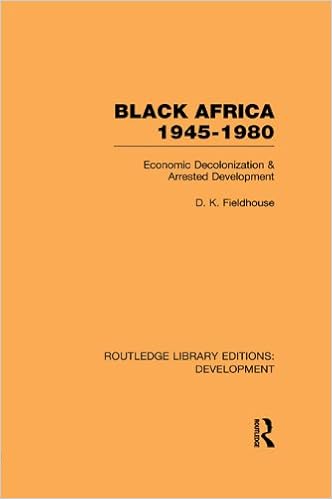
Decolonization is the process by which a colony gains its independence from the colonizing nation in order to become an autonomous country. Colonization, a concept used in many contexts, usually refers to the long-term dominance of a people and geographic territory by a more powerful group from outside. This dominance by one nation over others may take various forms—some more lenient than others—involving the imposition of a government, military force, economy, culture, education, religion, and technology. One of the characteristics of colonization is the creation by colonizers of a dependency—educational or economic, for example—among the dominated group. The process of decolonization may be only partial or may involve more than severance of political independence, as a former colony must undergo the long process of becoming free from dependency and suffer the impact of decades—or centuries—of economic, military, cultural, and other forms of oppression.
 Black Africa, Nineteen Forty-Five to Nineteen Eighty
by
Black Africa, Nineteen Forty-Five to Nineteen Eighty
by
Frantz Omar Fanon was a Martinique born Afro-Caribbean psychiatrist, philosoper, revolutionary, and writer whose works are influential in the fields of post-colonial studies, critical theory, and Marxism. As an intellectual, Fanon was a political radical, Pan-Africanist, and Marxist humanist concerned with the psychopathology of colonization, and the human, social, and cultural consequences of decolonization.